LG introduces faster G3

Following in the footsteps of fellow maker Samsung, LG just unveiled a beefed-up version of its current flagship smartphone, G3. Called G3 Cat. 6, the new Android handset comes with a faster processor and support for speedier cellular networks as its main highlights.
G3 Cat. 6, like Galaxy S5 LTE-A, is compatible with LTE-Advanced cellular networks, that enable top download speeds of up to 225 Mbps (theoretically speaking) courtesy of the Qualcomm Gobi 9 x 35 modem. In the power department, LG's device employs a quad-core Qualcomm Snapdragon processor to do the heavy lifting.
LG announces G3 Beat

Top Android manufacturers have made a habit of releasing smaller versions of their flagship smartphones. Samsung is doing it. HTC is doing it as well. And LG is no exception. But, unlike its fellow vendors, it is not calling it a "mini". Meet G3 Beat.
Also unlike Samsung and HTC, which give their mini-flagships small displays, LG opts for a 5-inch panel; it is as large as what One (M8) offers and not that much smaller than what Galaxy S5 comes with. Let us take a look at what G3 Beat has to offer.
LG's G Watch is now available
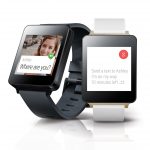
Smartwatches are not hugely popular today, but the big names in the tech industry continue to jump on the bandwagon. At I/O 2014 in June, Google announced the first iteration of its operating system for wearables, Android Wear, and today LG reveals that its first smartwatch to be based on it, G Watch, is now available.
G Watch is one of three Android Wear smartwatches announced last month at Google's yearly conference, with the other two coming from fellow makers Motorola (Moto 360) and Samsung (Gear Live). LG's offering goes for sale on Google Play and, worldwide through "key" retailers.
LG launches its biggest G Pad tablet
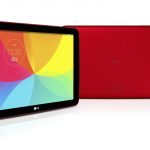
Starting today, consumers looking for a large tablet have one more option to choose from as LG rolls out its 10.1-inch G Pad across the globe. The slate is part of the South Korean maker's budget-friendly lineup, which was introduced in mid-May.
G Pad 7.0 was the first of LG's new slates to debut on the market, less than a month ago. Its bigger sibling, G Pad 10.1, is available first in US, with other markets -- Europe, Asia and Latin America -- to follow shortly, later this month.
LG G3: Impressive Android flagship [Review]
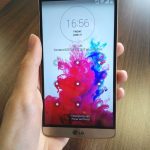
In a matter of months, a rumbling schism has developed in the Android camp. On one side sits HTC, churning out gleaming handsets of jaw-dropping design ingenuity. On the other sits Samsung, which seems content to slather everything in plastic, too busy beefing up its smartphones' specs to turn its attentions to ground-breaking design.
LG occupies the hallowed middle ground between the two, having packed impressive specs into a well-crafted handset. The LG G3 is the flagship weapon gunning for the Android top spot against Samsung and HTC -- and we have to say it's putting up quite the fight.
LG rolls out its new G Pad Android tablets

You may recall that in mid-May South Korean maker LG announced three new slates, part of its G Pad Android lineup. At the time details were scarce, as only the display size was revealed alongside the availability of branded software add-ons like Knock Code and QPair (and, of course, their names).
Today, LG announces the roll-out of the G Pad 7.0, G Pad 8.0 and G Pad 10.1, with the 7.0 being the first to hit store shelves, in Europe, this week. The two other slates will be available starting in the next couple of weeks. Its new devices "offer just the right balance of performance, personality and price to fill the gap between entry and premium tablets", according to LG.
LG G3 -- your heart's desire is here [Review]

Android smartphones are a dime a dozen nowadays. If a manufacturer wants to stand out among the sea of rectangular Google-powered devices, it has to bring it. But, what exactly is "it"? Is it specs? Is it the experience? What exactly do consumers want? I'm not sure that is crystal clear anymore. When buying a smartphone, consumers are forced to choose between an iPhone or Android (sorry, Windows Phone). If you want an iPhone, there isn't much choice, it is an easy decision. If you want Android, well, you'd better do your homework. Do you want pure Android or a tweaked UI? What screen size do you want? How much do you want to pay?
Cost is a huge factor now, as devices like the Motorola G push the boundaries of what a low-cost smartphone can be. For a consumer to spend a huge amount out of pocket or sign their life away with a long contract, the phone needs to be exceptional. There must be real reasons as to why they should buy it over a low-cost no-contract variant. When the LG G3 was announced, I was immediately impressed with how the company focused beyond the incredible specs to the overall user experience. But, would the G3 prove to be wonderful in practice? Luckily, I've been using the phone and I can now answer that question.
LG G3 first impressions -- the experience is greater than the sum of its (awesome) parts

Android phones have become rather predictable. Year after year, we see specs increase and little else. In other words, the Android market has become stagnant. Even low-end phones are very good -- case in point, the Moto G. However, many consumers still want to have top of the line devices, so manufacturers keep pumping out flagships.
Today, I had the opportunity to attend the LG G3 event in New York City. Since I had already seen many of the leaked images, I was not expecting to be surprised. However, the company did surprise me by focusing on software and UI improvements in addition to the improved hardware. When I finally got my hands on the beautiful hardware, I surprised myself -- rather than focus on what the G3 hardware is, I focused on what it does.
Watch the LG G3 launch here live
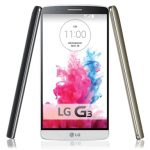
One of the most highly anticipated phones of 2014, the LG G3, is to launch today at simultaneous events in London, New York, and San Francisco. There’s not much we don’t know about the device, thanks to a stream of leaks.
The 5.5 inch handset is expected to have a brushed-metal finish and offer a Quad HD screen with a resolution of 2560x1440. Leaked product information says it will have a Snapdragon 801 processor and 2GB of RAM, 13MP rear camera with image stabilization, 2.1MP front camera, and be water and dust repellent.
LG teases upcoming G3 Android flagship
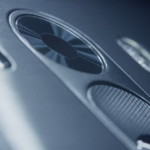
It is hardly a secret that LG is working on the successor of its G2 flagship, as the South Korean maker has officially announced that the upcoming G3 Android smartphone will be unveiled at a press event later this month. It says so in the description of one of its YouTube videos, a teaser of, you guessed it, the G3, as well as on its Facebook page (and, most likely, every other social media page LG has).
We do not need to speculate on the name (G3, obviously), the day of its presentation (May 27) or even the hour (18:00 GMT, 1 pm EST, 10 am PST). But, not to reveal all its cards before the big night, LG is (for now, at least) still keeping the actual smartphone under wraps. Go figure. We can, however, get a pretty good idea on how the G3 looks and what it offers, as the teaser does reveal plenty of details.
LG's extended G Pad lineup will appeal to more tablet fans

South Korean maker LG admits that, at least when it comes to tablets, one size does not fit all. Today, the company announces that the G Pad 8.3, which was unveiled last year, will soon be joined by three new G Pads in its slate lineup, which will range in size from a small 7-inch to a large 10.1 inch option.
The upcoming G Pad 7.0, G Pad 8.0 and G Pad 10.1, together with the G Pad 8.3, can allow LG to reach more potential buyers and, ultimately, establish itself as a top tablet vendor, joining the likes of Apple, Samsung, ASUS and Amazon.
Lenovo, LG have a 'me too' moment, also tell Ellen they have better smartphone cameras than Samsung

Ellen DeGeneres' Samsung Galaxy Note 3 made waves at the Academy Awards after being used to snap an on-stage selfie and a group shot. Both quickly became hugely popular photos taken at the event, and target practice for the South Korean maker's rivals.
Nokia was first to take a stab at Samsung for the terrible quality of DeGeneres' selfie, implying she should have used one of its smartphones instead. The photo posted by the star even had the #blurry hashtag added on Twitter to make up for what was basically a missed shot. Not to miss this opportunity (to be unoriginal), Lenovo and LG also took to Twitter to convince us that their smartphones would have fared better than Samsung's phablet.
LG plays the miniaturizing game too, unveils G2 mini
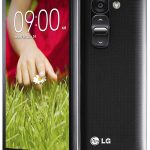
Android vendors may like to announce bigger smartphones (because, bigger is better, isn't it?), but they also launch smaller versions of their flagships, to cater to a larger audience. Samsung has the Galaxy S4 Mini, HTC has the One mini and, now, LG takes the wraps off G2 mini. Heck, even the indicative has a small first letter.
The downsizing applies to the physical dimensions, as the screen is now a 4.7-inch unit with a resolution of 540 by 960, and also to the internals. LG has chosen not to severely underpower its new smartphone. Compared to its big brother, it still offers a quad-core processor in both the 3G and 4G trims, but those cannot compare to the Qualcomm Snapdragon 800 in the G2.
Here is LG's new G Pro 2 phablet

There is a tendency among smartphone manufacturers to release new handsets that come with larger screens than their predecessors. Their belief is, apparently, the bigger the better. There is also no visible concern over usability. That especially holds true in the Android world, where we see some of the largest smartphones -- also known as phablets -- around, with their sole purpose, more often than not, being to dwarf what they are replacing. The upside is this trend is catching on among consumers, who are buying more and more phablets each year.
At the same time, in an attempt to steer clear of any unwanted feedback, some manufacturers try their best to negate the effects of the larger displays over usability by resorting to smaller bezels and adapting the software to match the sheer size. A good example of this is the new G Pro 2 phablet, that LG just revealed to offer some interesting hardware and software features.
Should Google stop launching Nexus devices?

Nexus smartphones and tablets have developed a cult following among enthusiasts mainly due to Google's ability to deliver updates to the latest versions of Android in a timely manner. The software also has little to no customizations over the code that is available in AOSP, unlike that of many devices that have been offered throughout the years by Android vendors, such as HTC and Samsung. Android enthusiasts often refer to Google's distributions as "pure Android", even though that is no longer the case exactly with the new Nexus 5, that has introduced a launcher not officially found on any of its siblings (or available in AOSP for that matter).
Nexus devices were also supposed to usher Android vendors into releasing smartphones and tablets that adhere to the design guidelines established by Google. This is one area where the search giant's brand has failed to become a trendsetter, as the likes of HTC, LG and Samsung continue to apply their own vision on how their Android handsets should look at the software and hardware levels. Remember how physical buttons were supposed to go away from the front of Android devices? Well, they are still alive and kicking even in 2014 and even on tablets (even though there were clear signs pointing to slates only adopting on-screen keys). It could, therefore, be argued that the Nexus ethos has already ran its course and it is time for Google to move on. So should Google move on?
Recent Headlines
BetaNews, your source for breaking tech news, reviews, and in-depth reporting since 1998.
© 1998-2025 BetaNews, Inc. All Rights Reserved. About Us - Privacy Policy - Cookie Policy - Sitemap.